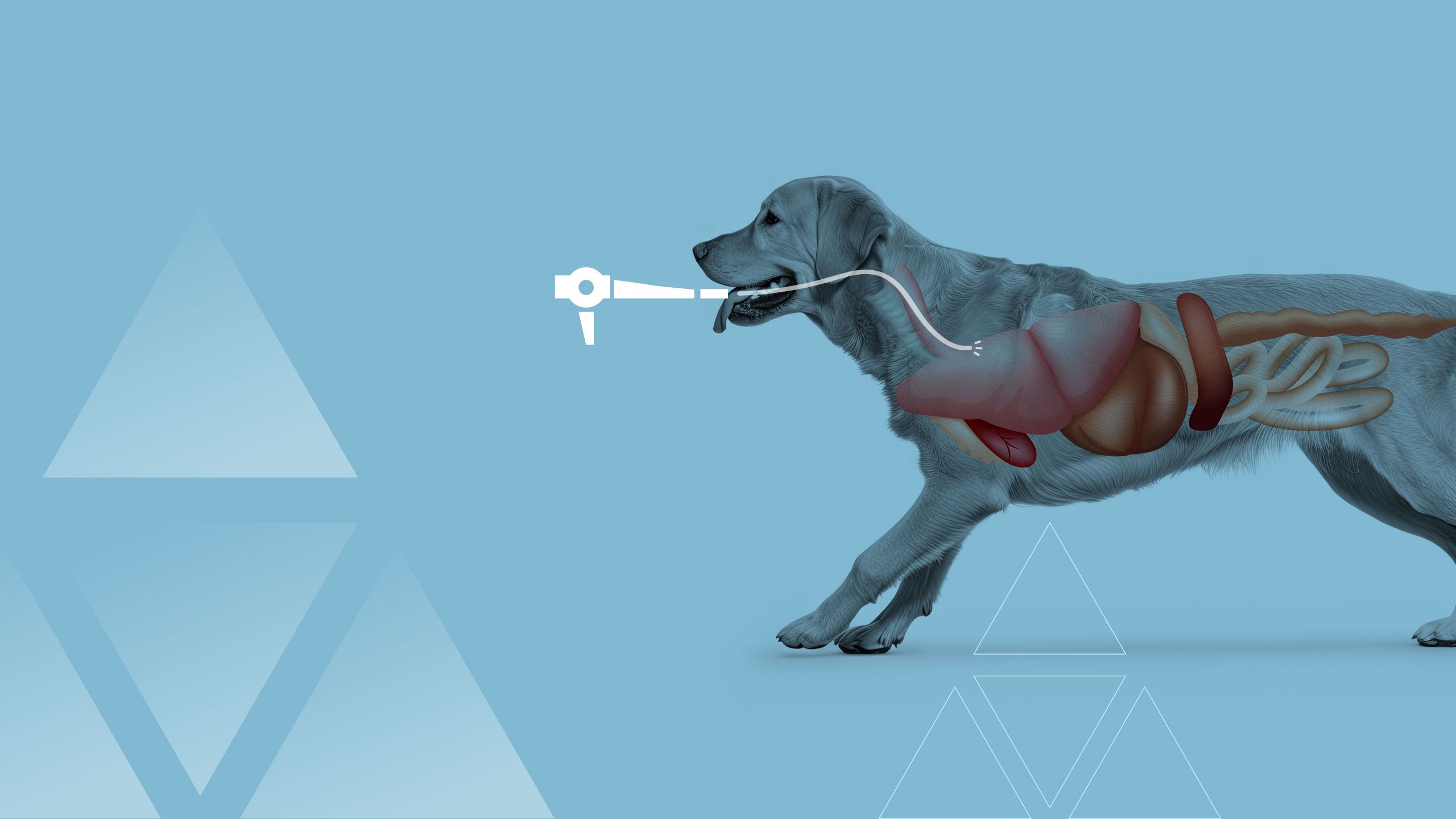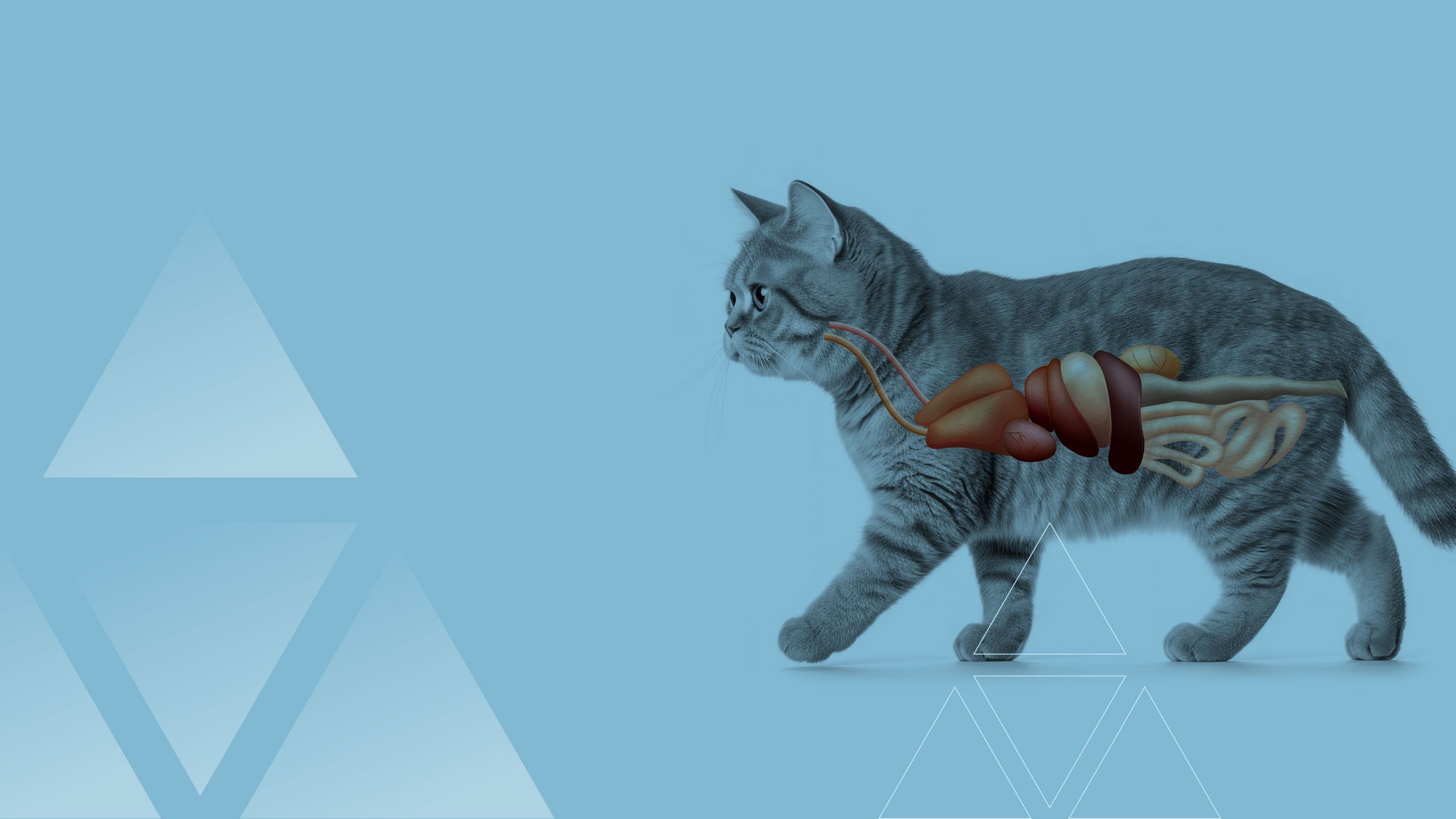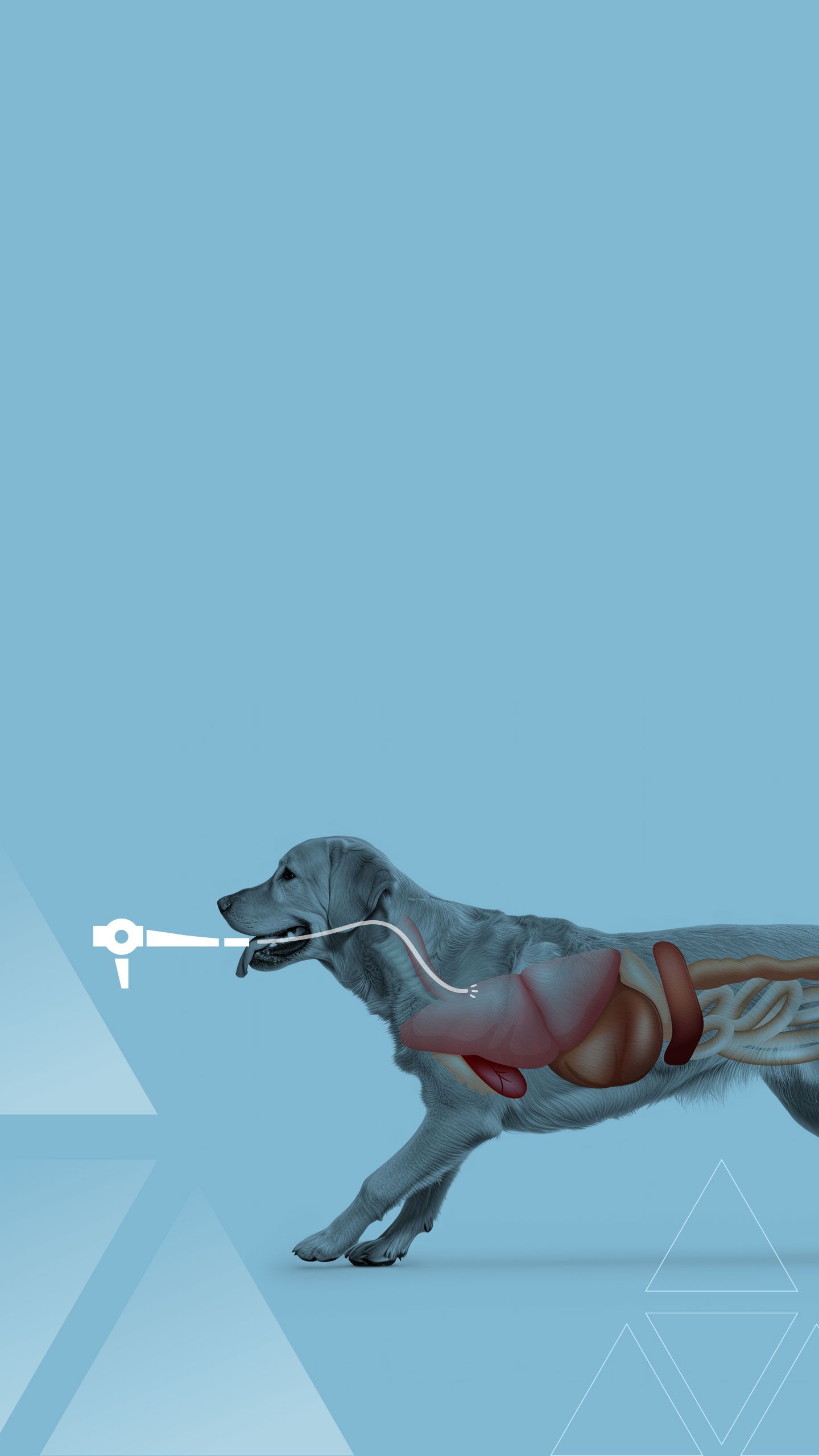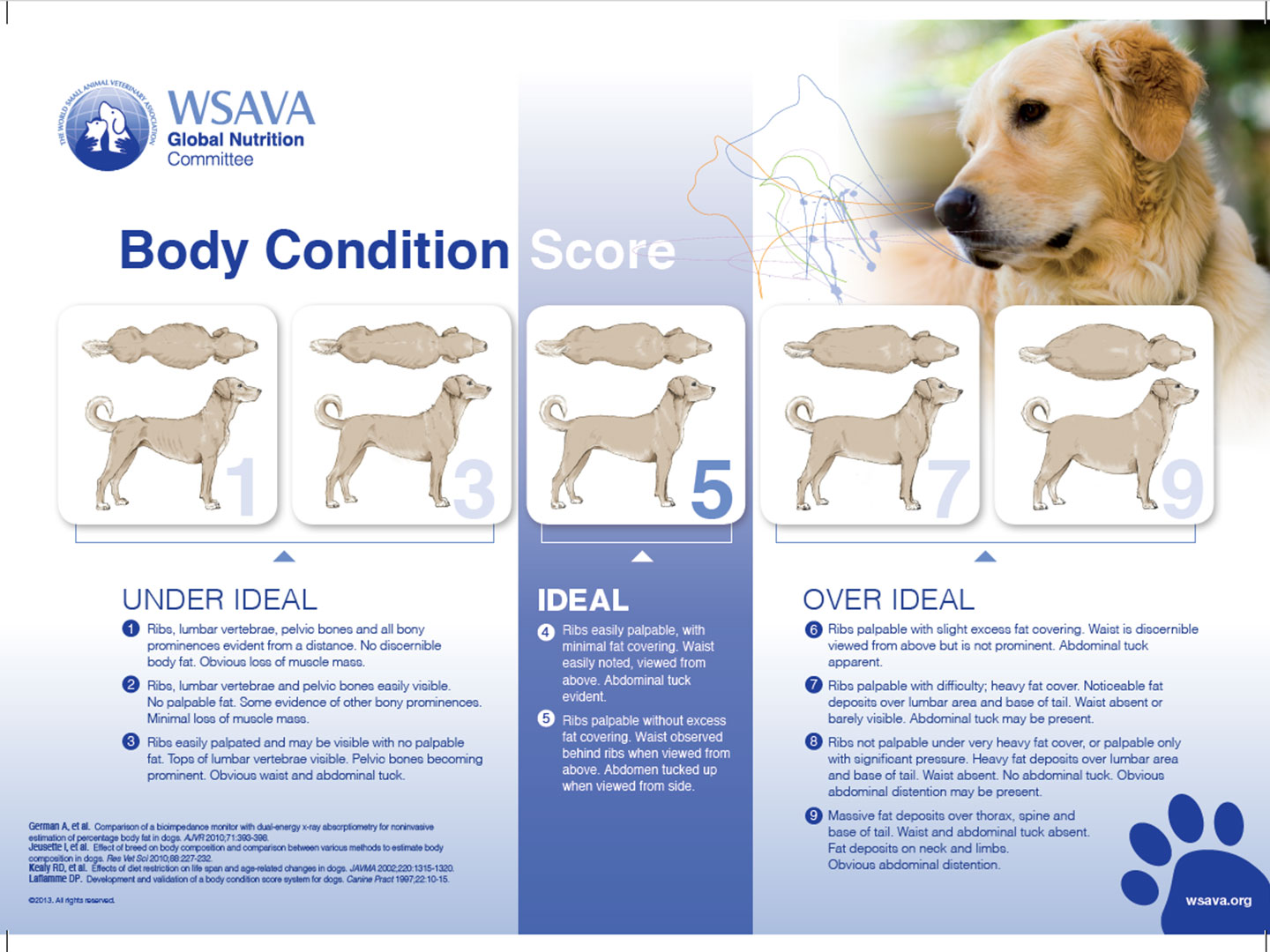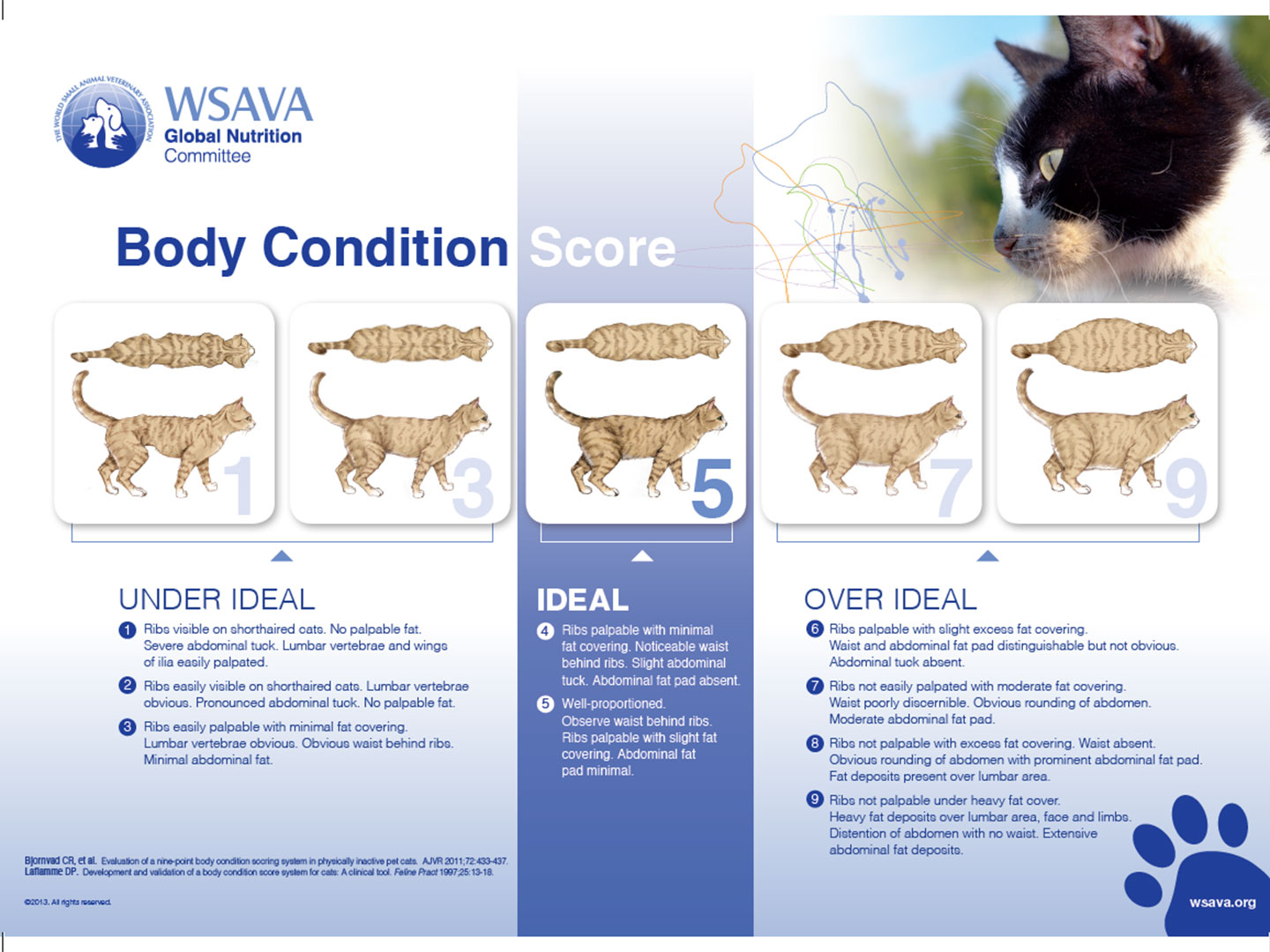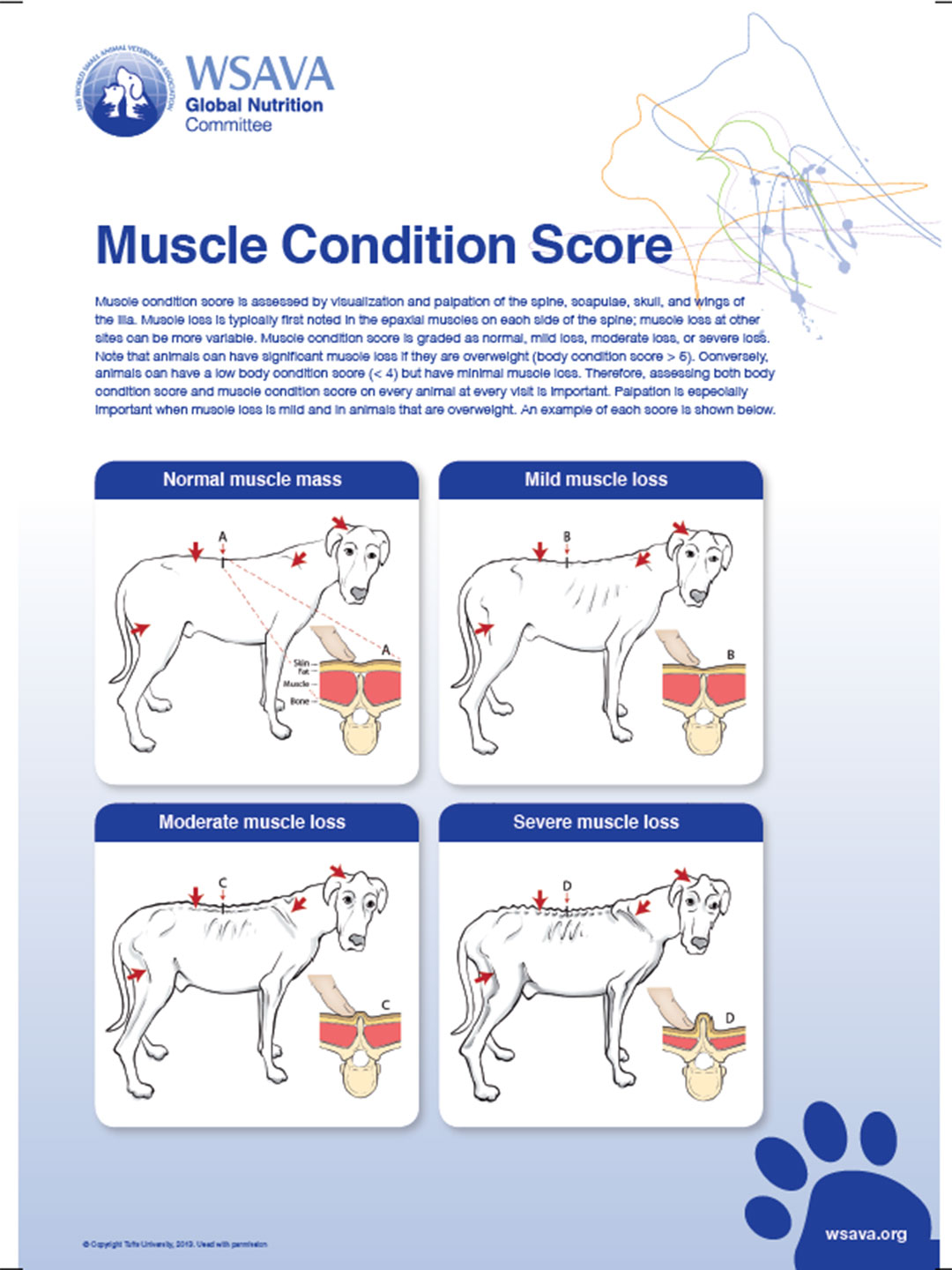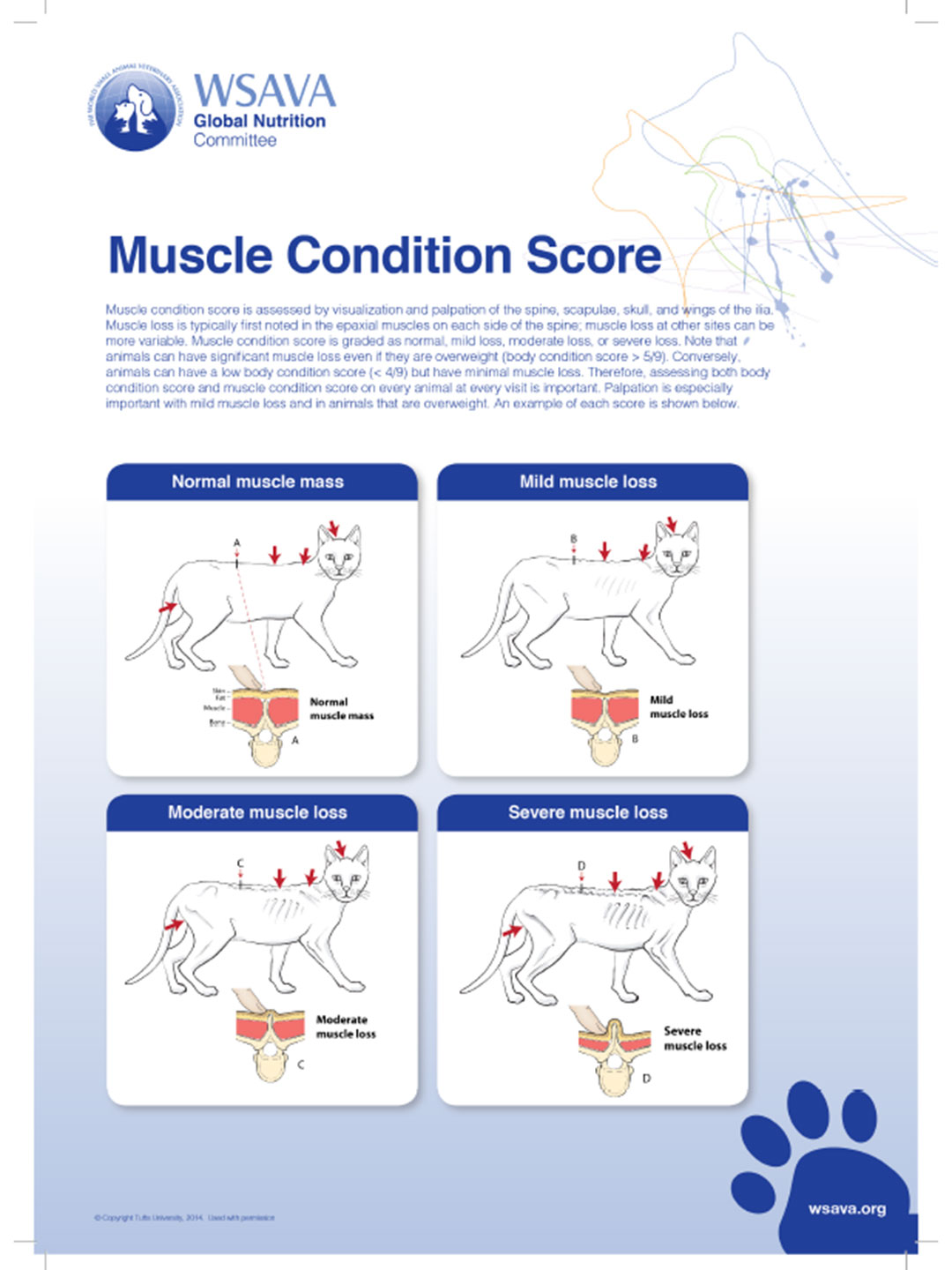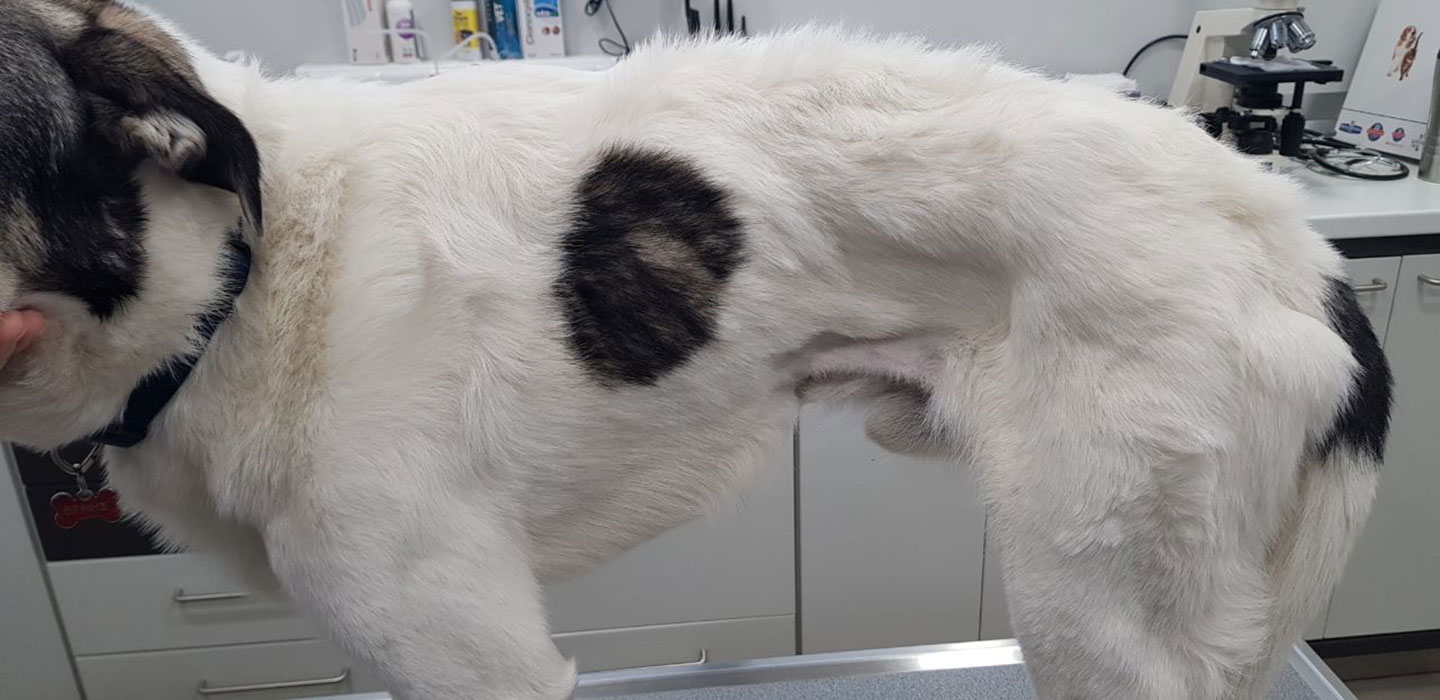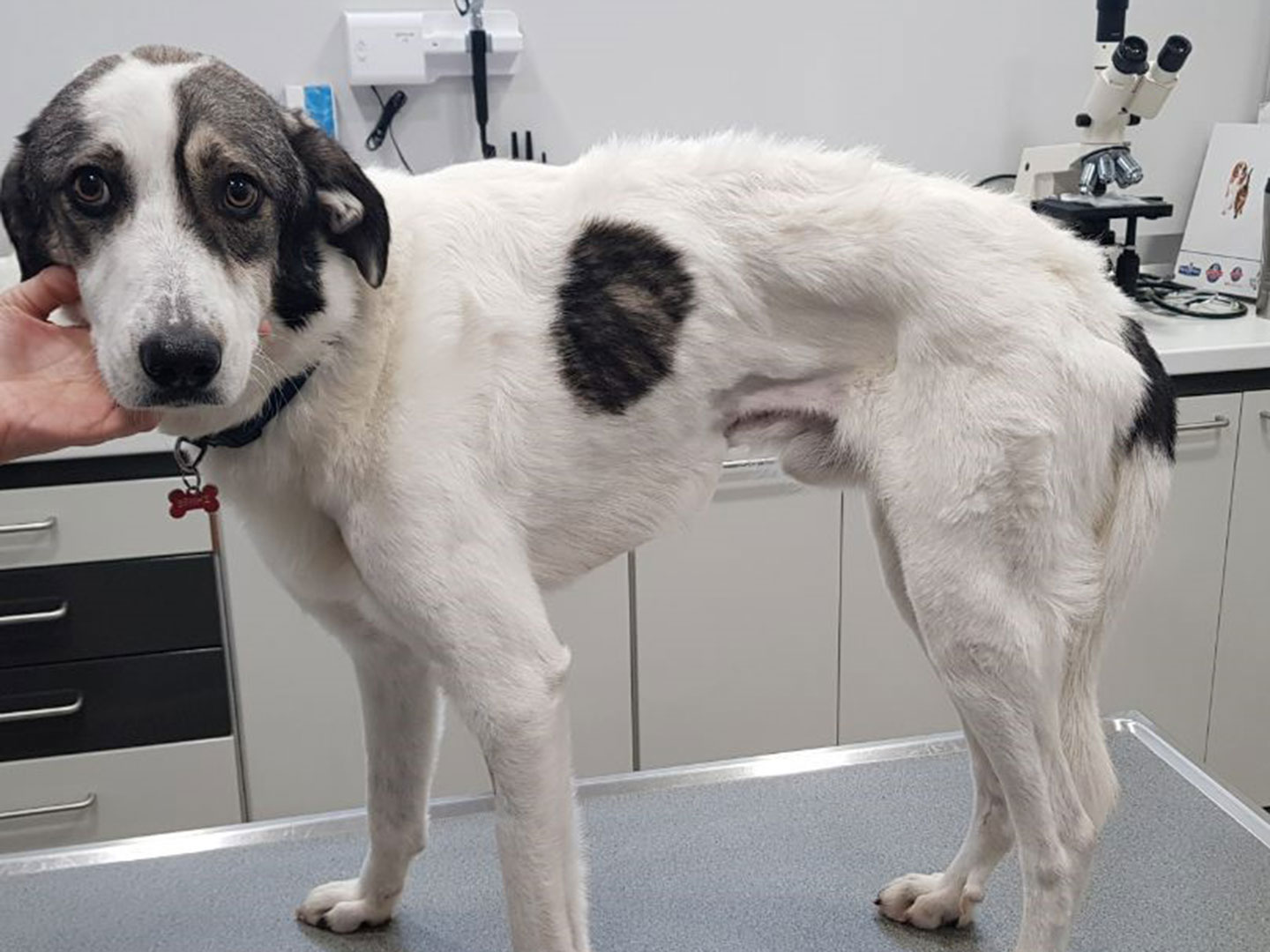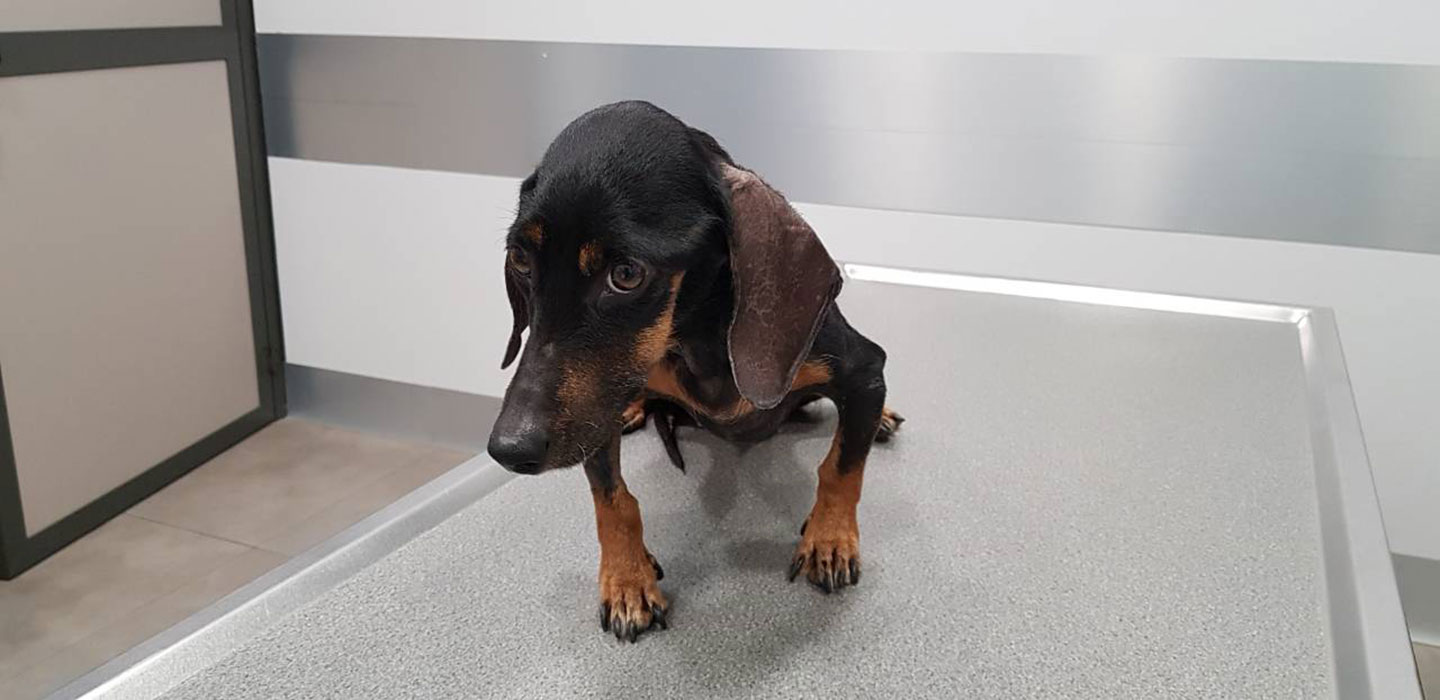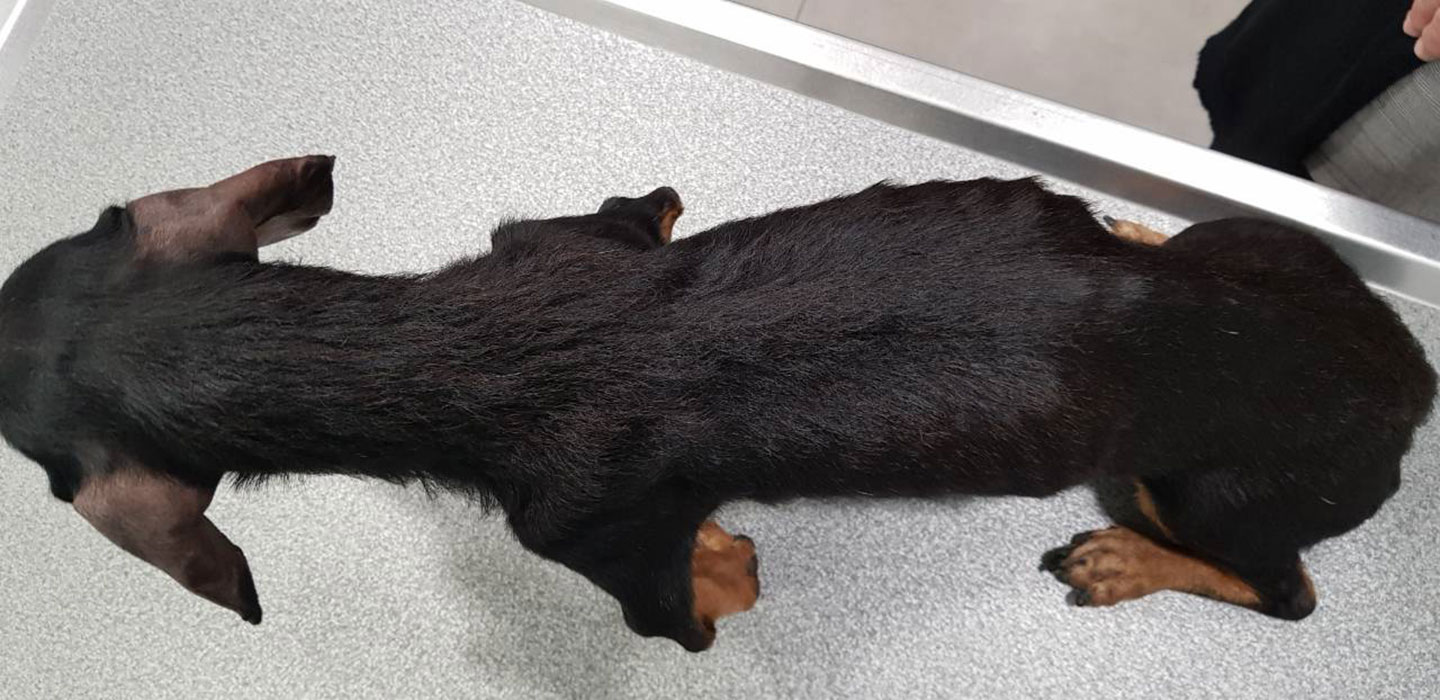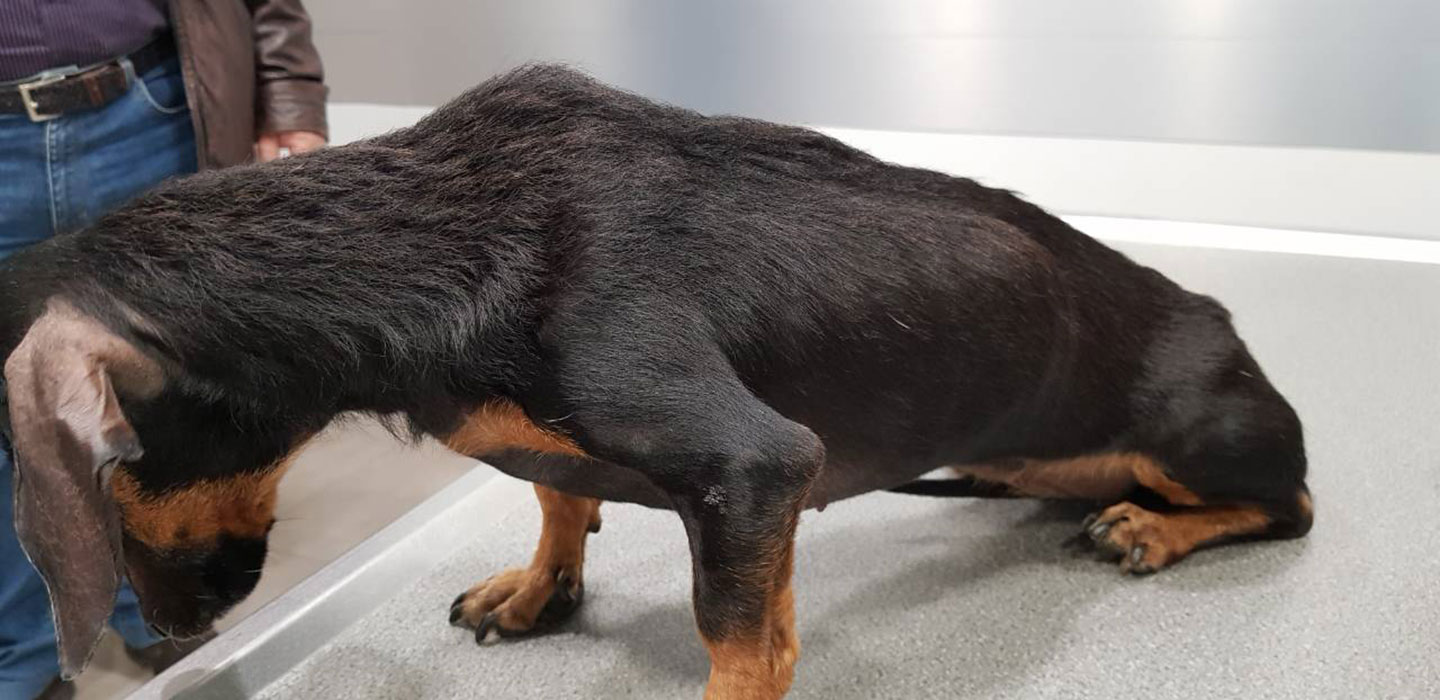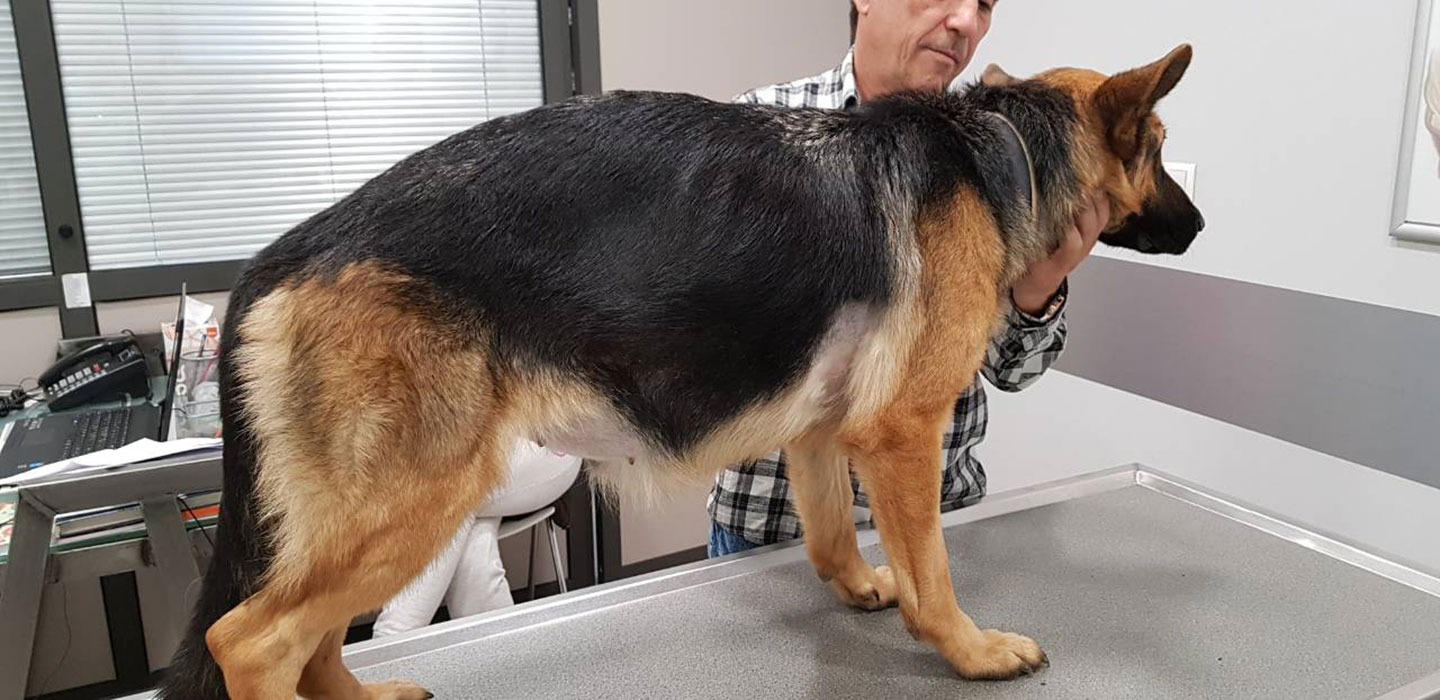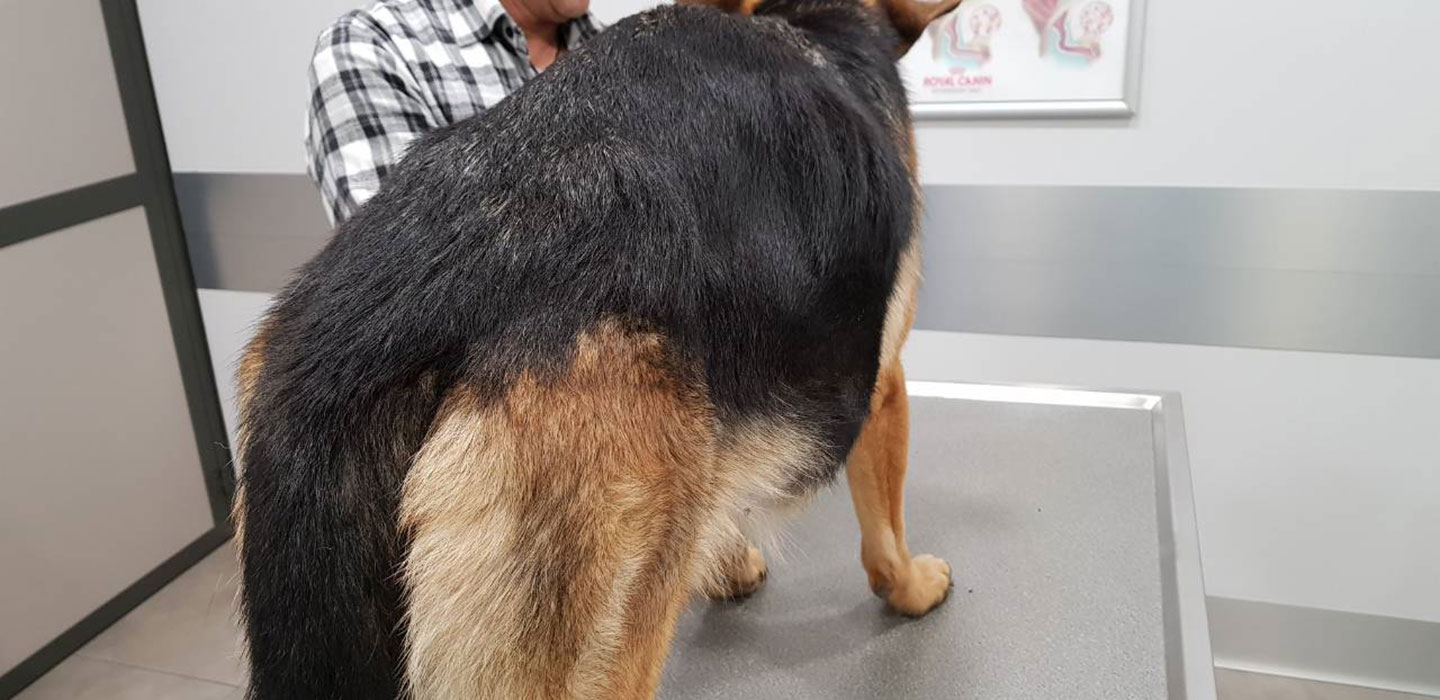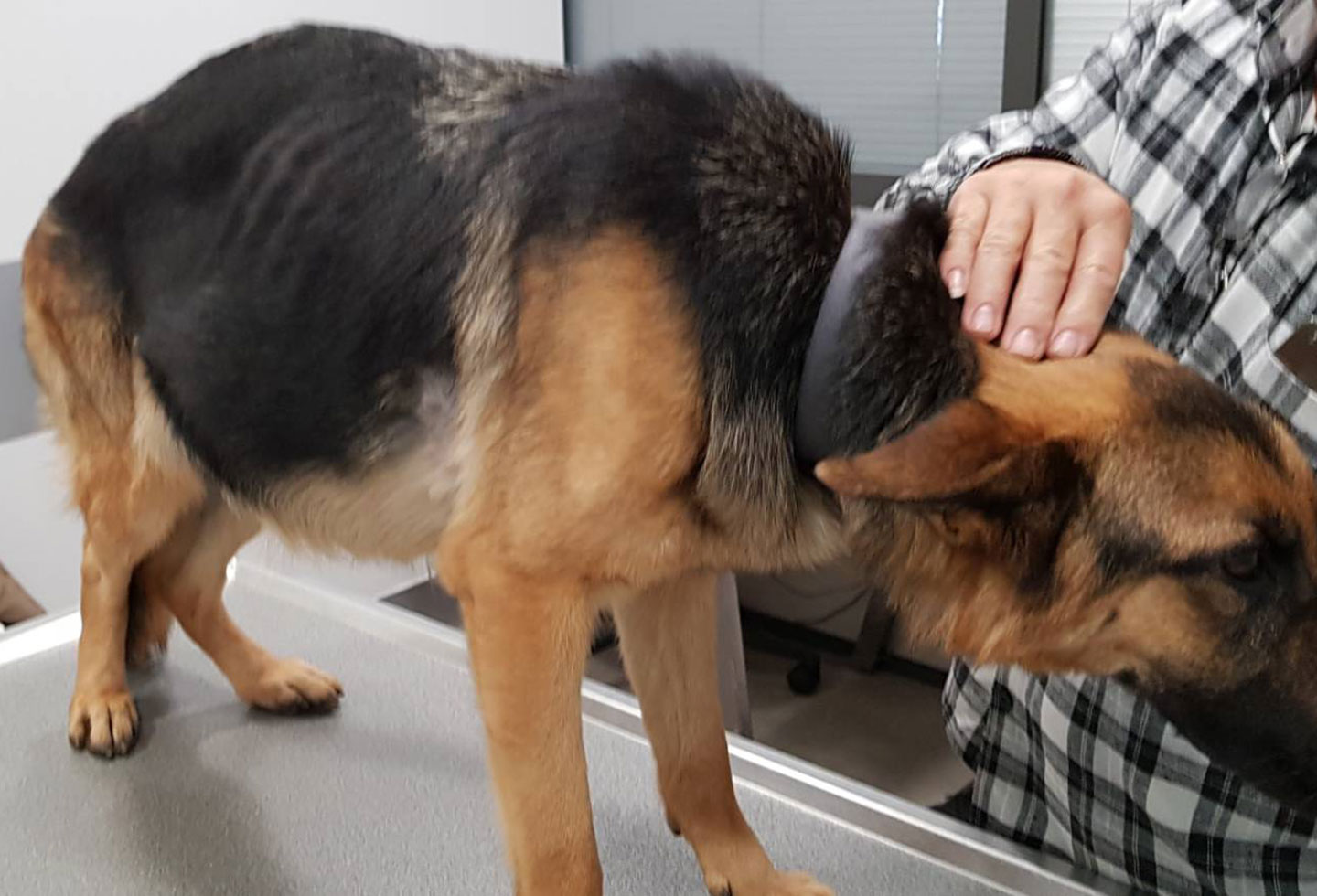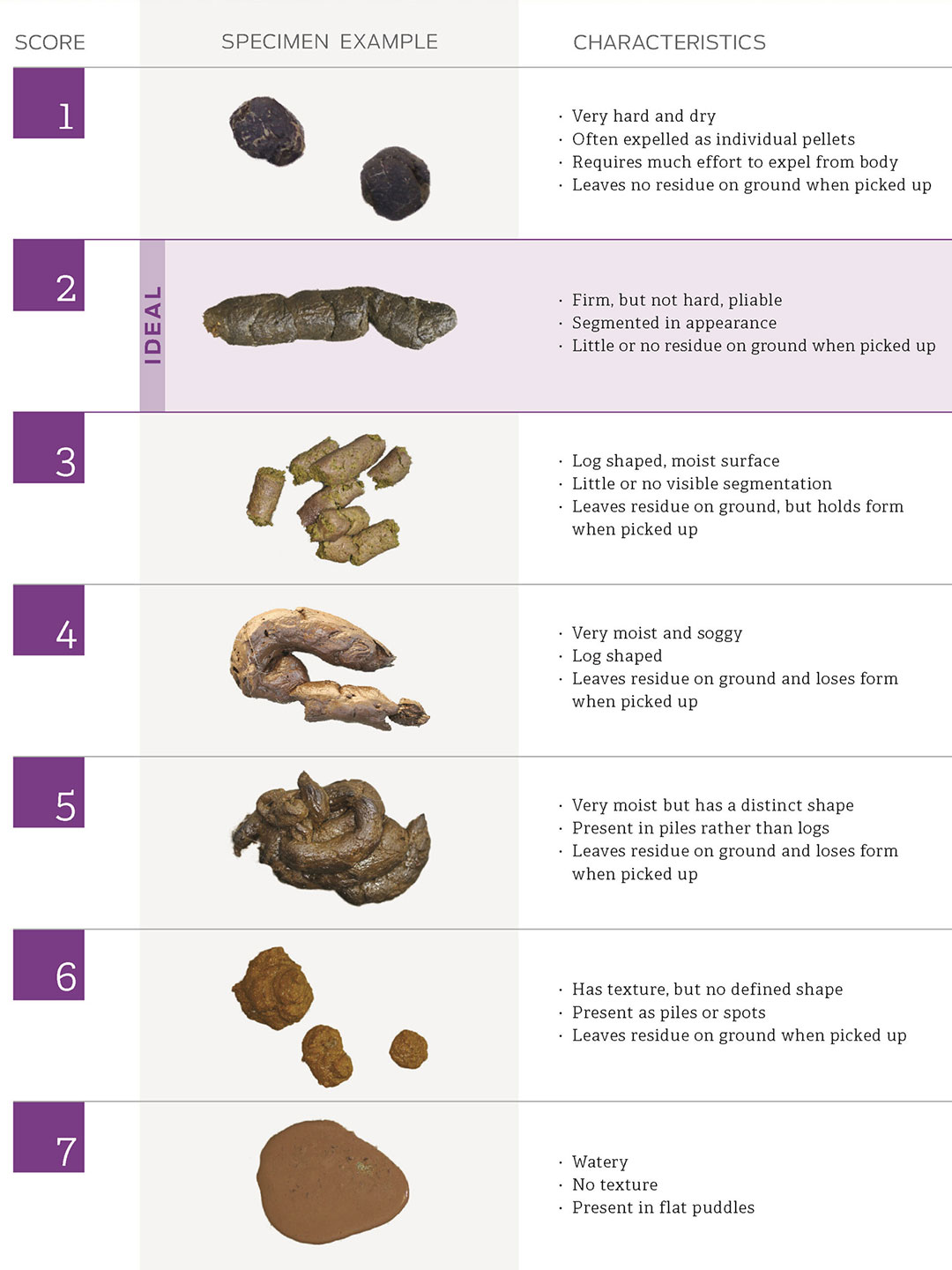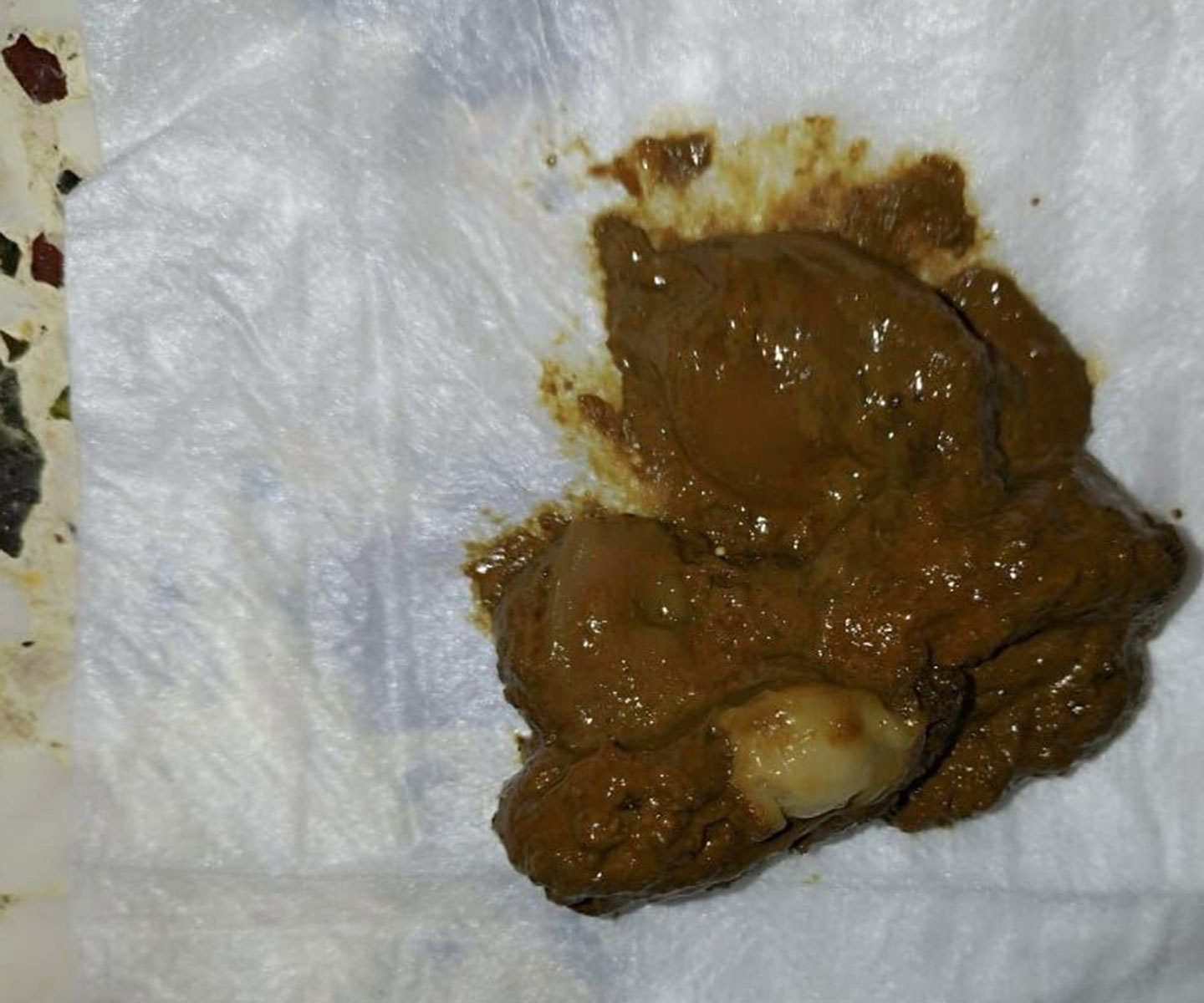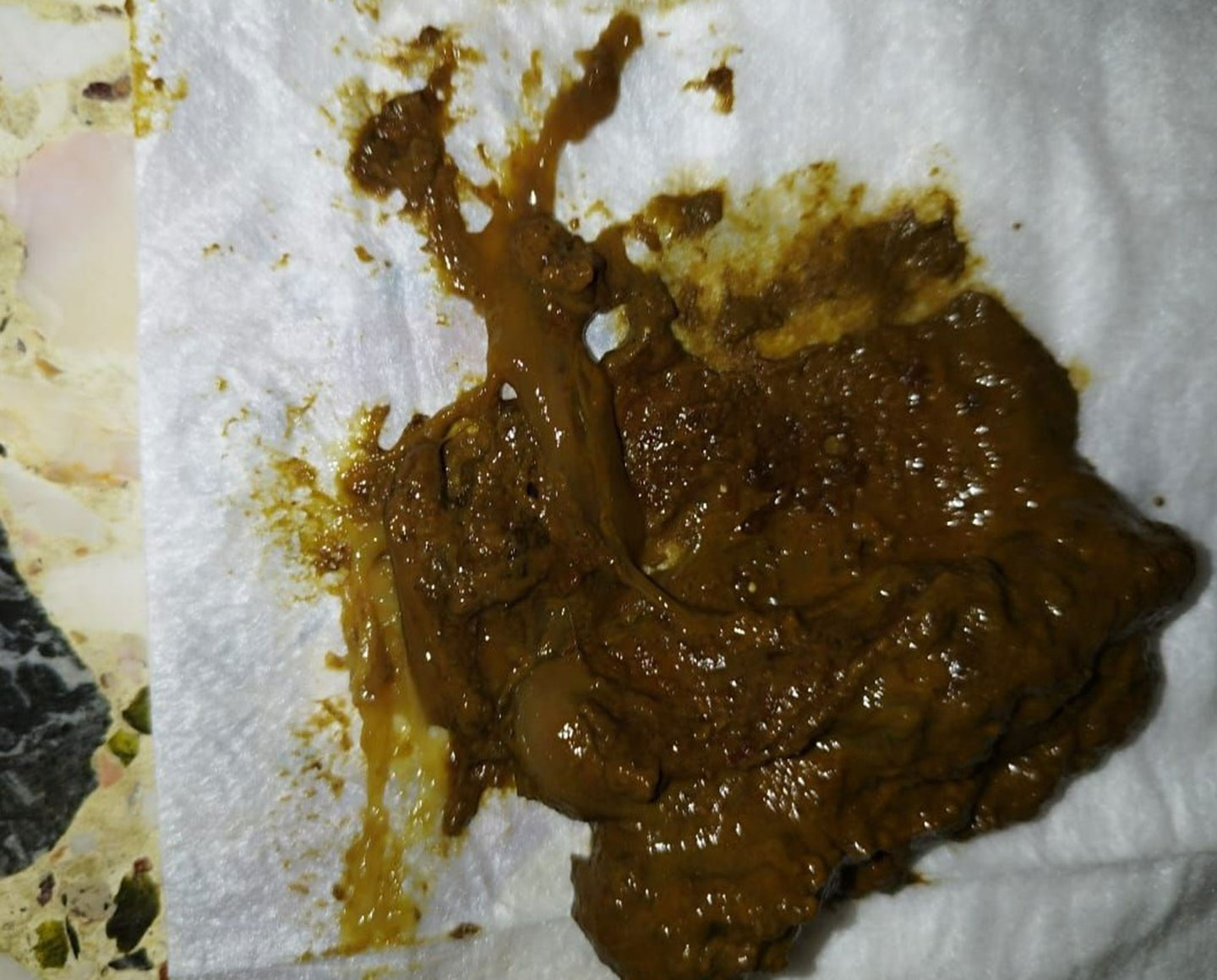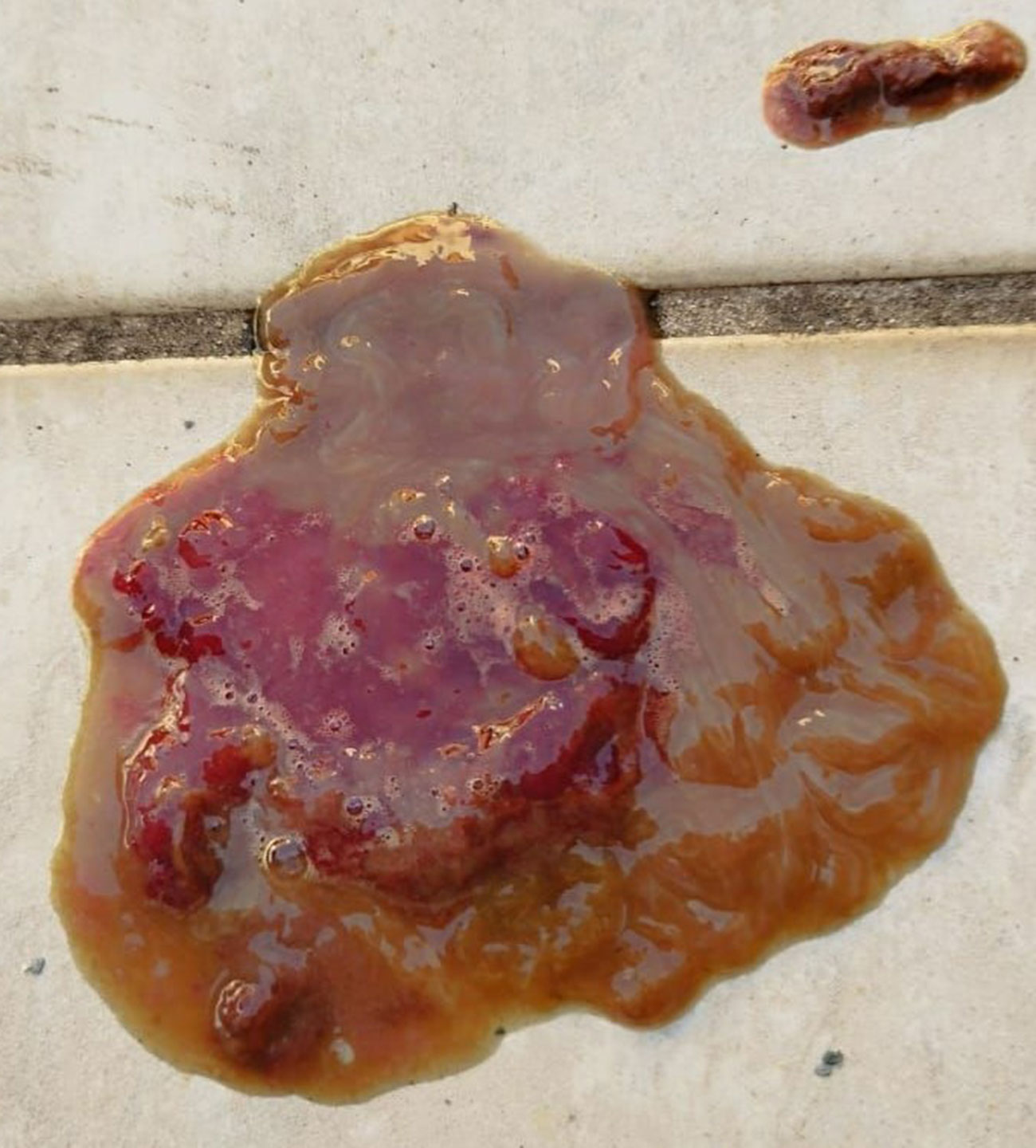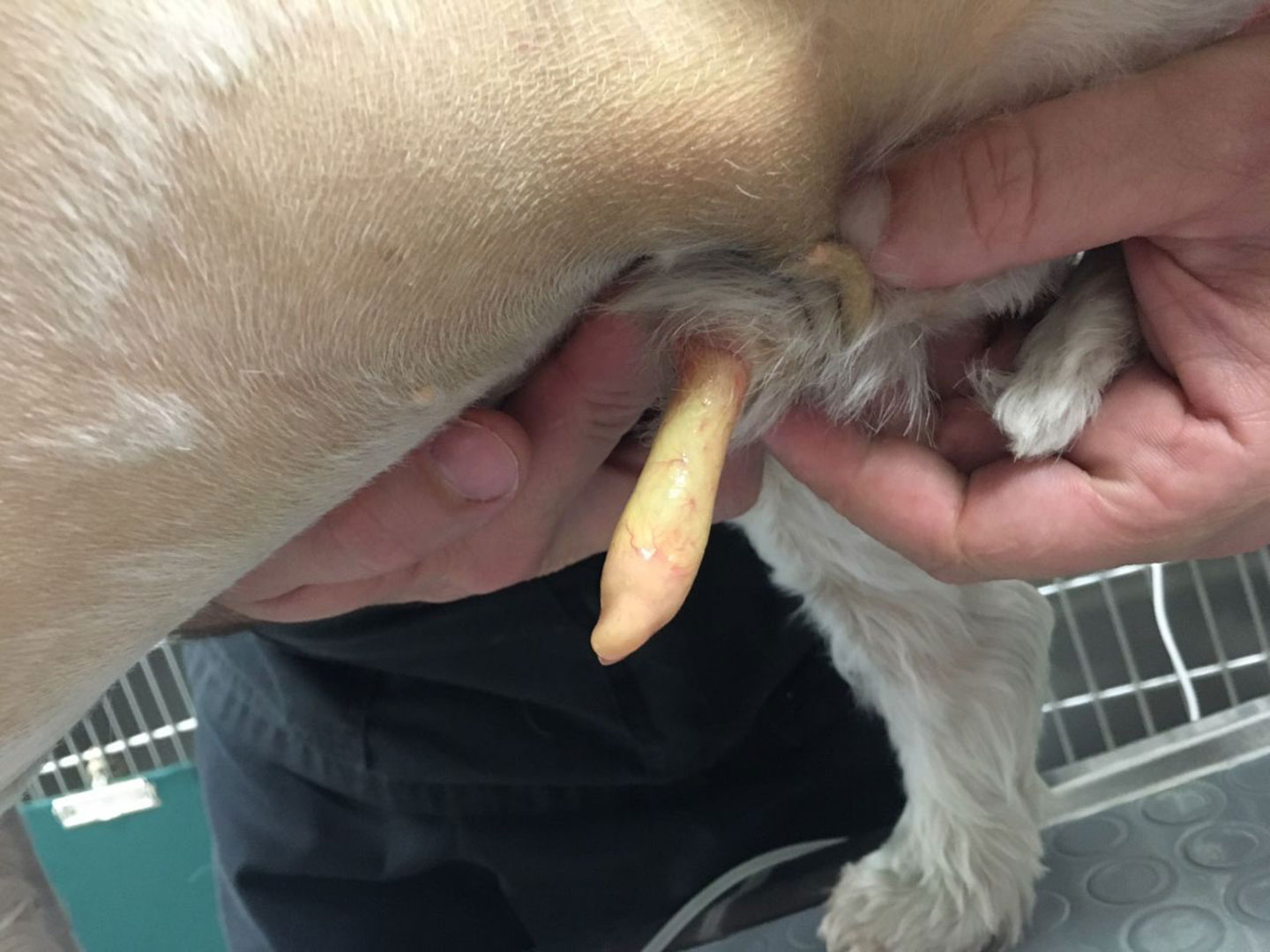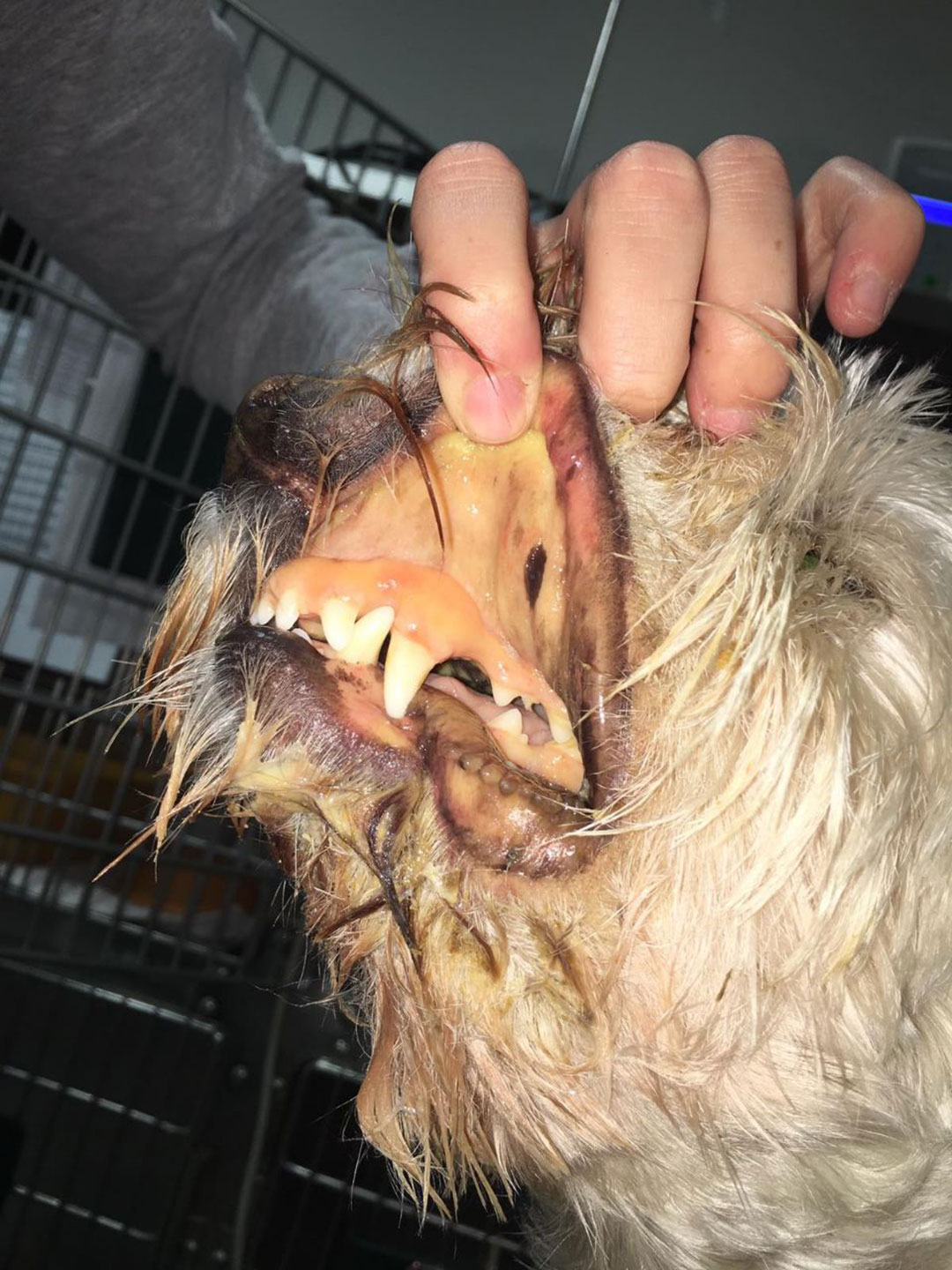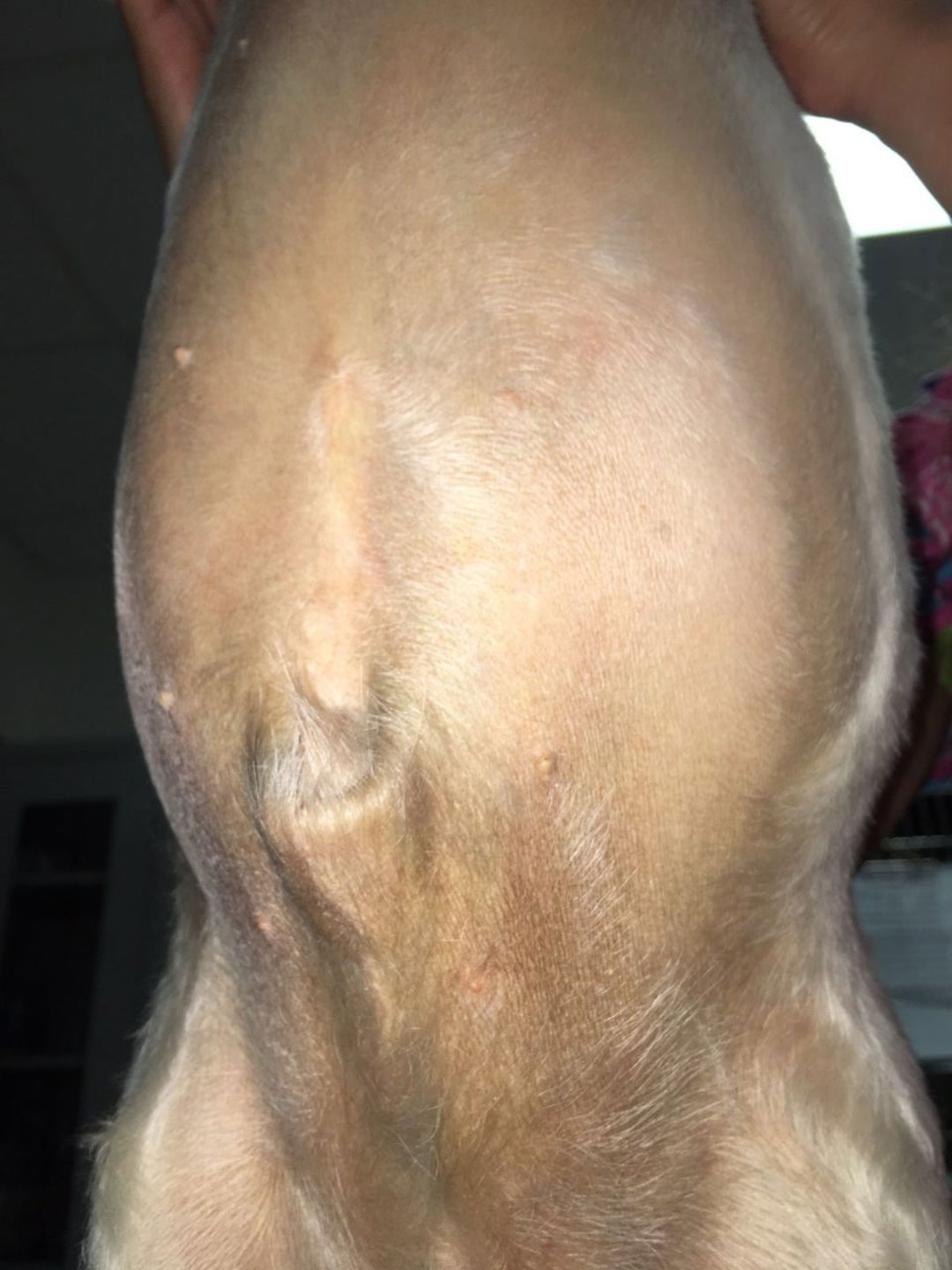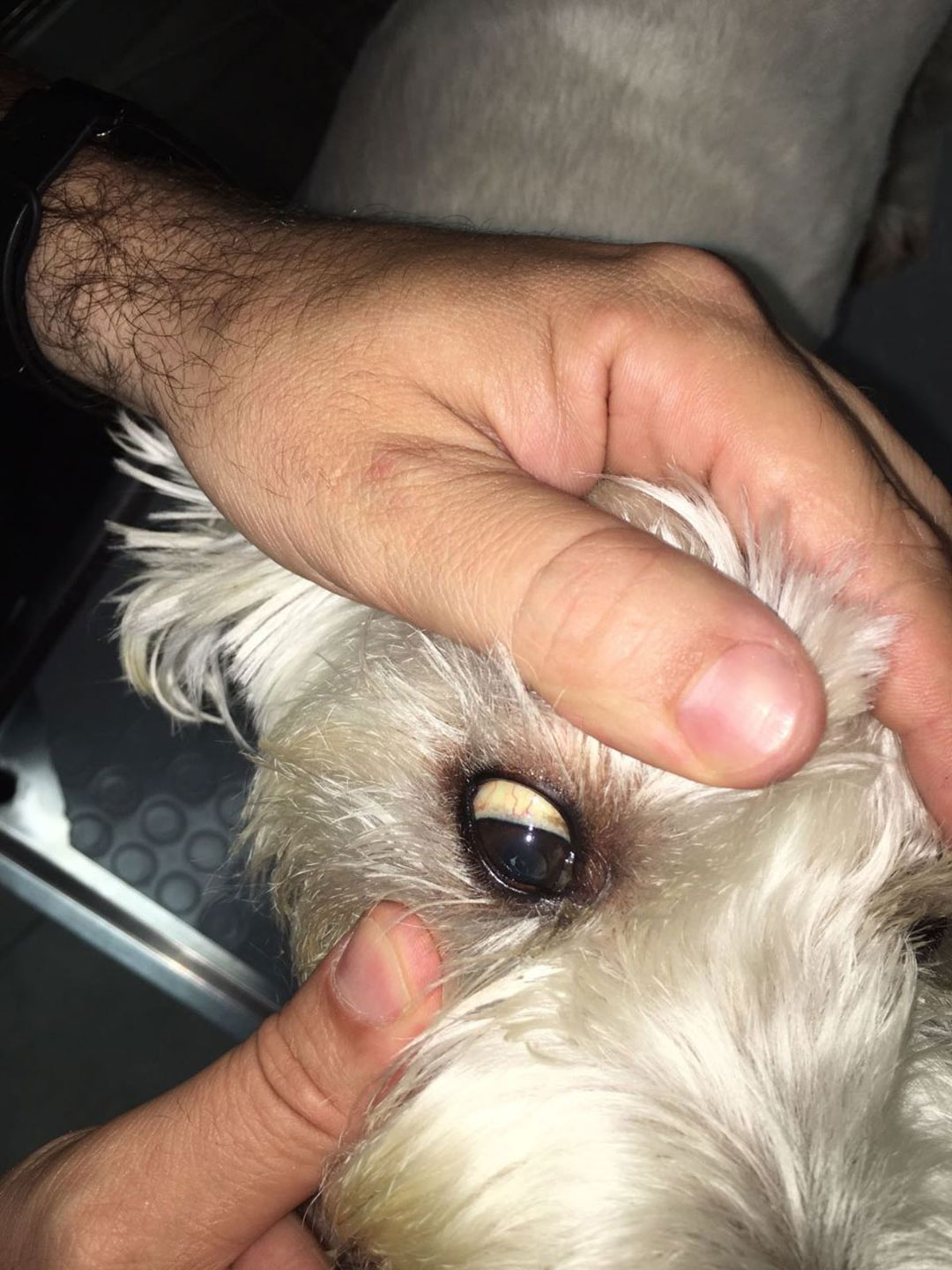This website uses cookies so that we can provide you with the best user experience possible. Cookie information is stored in your browser and performs functions such as recognising you when you return to our website and helping our team to understand which sections of the website you find most interesting and useful.
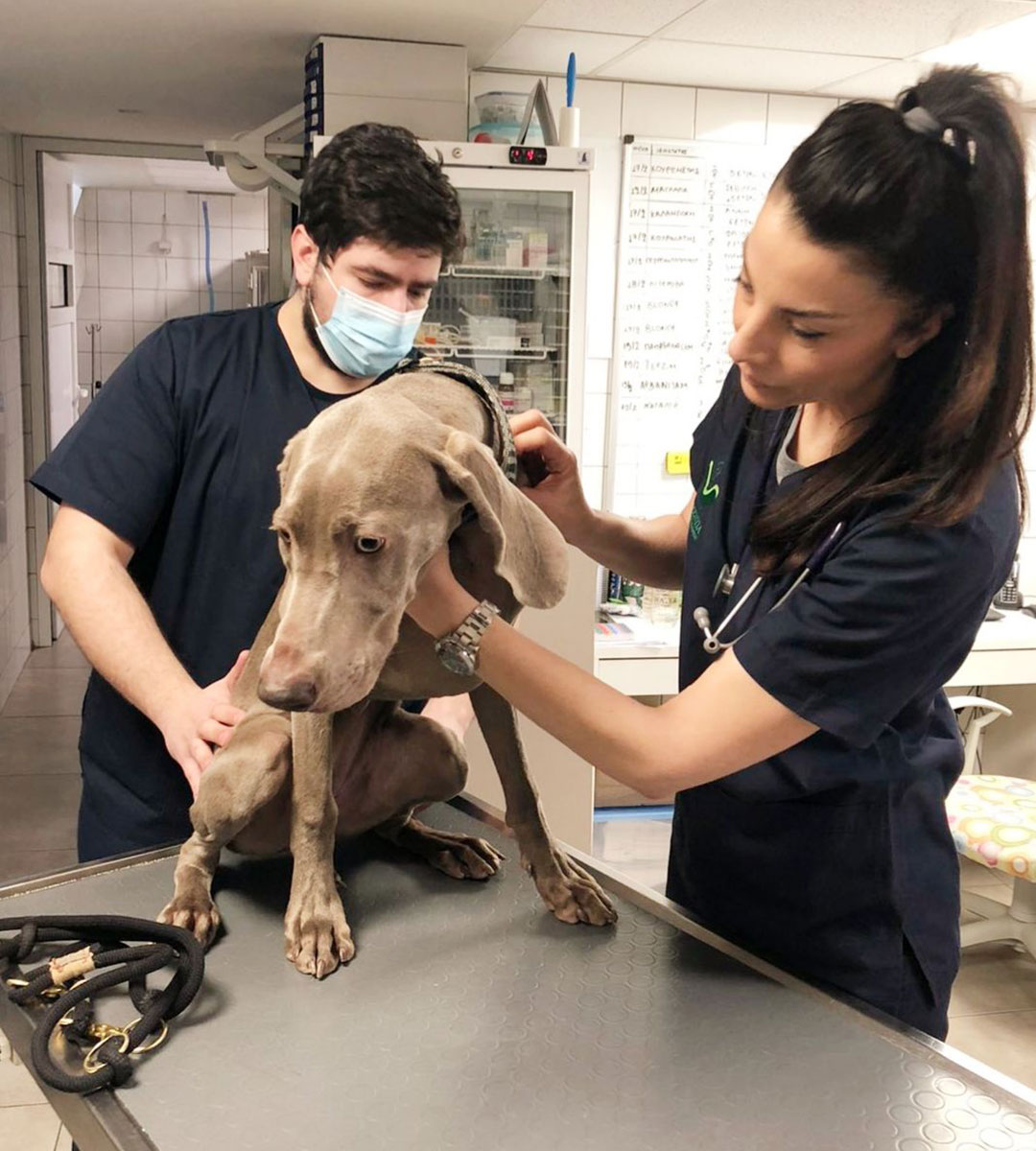
Consultation in Gastroenterology Cases
Over the past decade, our understanding of the digestive and immune functions of the gastrointestinal system in dogs and cats has significantly advanced, leading to impressive discoveries of new diseases (such as histiocytic ulcerative colitis in Boxers, leiomyositis/chronic intestinal pseudo-obstruction in dogs, eosinophilic sclerosing fibroplasia of the gastrointestinal tract in cats etc). We are on the brink of a new era in which scientific research is increasingly focused on the prominent role of the gut microbiome and “functional precision nutrition”, aimed at personalized treatment for gastrointestinal disorders.
At Vetmedica Endoscopy Solutions we specialize in gastroenterology for dogs and cats, alongside advanced endoscopic procedures. We welcome referrals from veterinarians seeking a second opinion for gastroenterology cases. Collaborating closely with other departments within our Internal Medicine, Imaging, Surgical, and Laboratory sectors, we offer comprehensive management of the entire spectrum of gastrointestinal diseases, utilizing both conservative and surgical approaches. Prevention is also a cornerstone of our practice, playing a vital role in modern gastroenterology.
A detailed medical history and the ability to recognize and classify the clinical symptoms exhibited by patients with gastrointestinal diseases are crucial for achieving accurate diagnosis and effective treatments.
GASTROINTESTINAL SYMPTOMS
The main pathological symptoms that warrant a specialized examination by a gastroenterologist for dogs/cats include:
- Abdominal Pain: This may manifest as a prayer position, intense response upon abdominal palpation, or reluctance to move. It can be observed in acute hepatitis, cholecystitis, pancreatitis, peritonitis, intestinal intussusception, gastric ulcers, intestinal obstruction, as well as in various extraintestinal diseases such as adrenal insufficiency, prostatitis, pyelonephritis, splenic torsion, and urinary obstruction.
- Weight Loss: This may be attributed to diseases of the oral cavity and pharynx, esophageal diseases, gastric diseases, infiltrative enteropathies, hepatopathies, exocrine pancreatic insufficiency, gastrointestinal neoplasms, as well as numerous extraintestinal diseases like cardiac cachexia, diabetes mellitus, hyperthyroidism, and chronic kidney disease (CKD).
- Ascites: Observed in protein losing enteropathy, portal hypertension cases (fibrosis/cirrhosis of the liver, portal vein thrombosis), as well as in cardiogenic diseases (right-sided heart failure, pericardial disease), peritonitis, protein losing nephropathy, and uropneumoperitoneum.
- Bloating: Gastric dilation/torsion, intestinal ileus, as well as in respiratory diseases (dyspnea and aerophagia) or severe pain (tachypnea and aerophagia).
- Diarrhea: Dietary causes (toxicity, food allergies/intolerances, spoiled/inappropriate foods), infiltrative intestinal diseases (idiopathic inflammatory bowel disease), antibiotic-responsive enteropathies, intestinal lymphangiectasia, intestinal lymphoma, liver-biliary diseases, and numerous extraintestinal diseases such as endocrinopathies (adrenal insufficiency, hyperthyroidism, hypothyroidism), acute and chronic kidney failure, etc.
- Melena/Black Stool: Indicative of ulcers in the stomach or small intestine, as well as in conditions causing coagulation disorders and generalized bleeding tendencies, swallowing blood from the respiratory tract, oral cavity, or nasal cavity.
- Regurgitation: Seen in structural diseases of the esophagus (foreign bodies, neoplasia, vascular ring anomalies like a persistent right aortic arch), motility disorders of the esophagus (megaesophagus), or extaintestinal diseases causing hypomotility of the esophagus (myasthenia gravis, idiopathic hypersalivation responding to phenobarbital/limbic epilepsy, brachycephalic obstructive airway syndrome, etc.).
Regurgitation in a cat with esophageal stricture after doxycycline administration
- Vomiting (Acute/Chronic): Associated with stomach diseases (acute/chronic gastritis), intestinal diseases, liver/gallbladder diseases, pancreatic diseases, as well as a plethora of extraintestinal diseases such as acute/chronic kidney failure, multicentric lymphoma, neoplastic processes, endocrinopathies, and central nervous system disorders causing central-origin vomiting.
- Tenesmus: Painful and repetitive attempts to defecate, indicative of anal diseases (fistulas, abscesses, neoplastic lesions), anal sacs diseases, diseases of the rectum, large intestine/colitis, as well as many extraintestinal diseases such as pelvic obstruction, perineal hernia, prostatic disease, and tenesmus from lower urinary tract diseases.
- Jaundice: Associated with liver diseases, hemolytic anemia, hypophosphatemia-induced anemia, disseminated intravascular coagulation (DIC), hemangiosarcoma, transfusion reactions, neonatal isoerythrolysis, copper/zinc toxicity, feline infectious peritonitis (FIP), and diseases of the gallbladder/biliary tract, bile duct obstruction, pancreatic diseases, and duodenal diseases.
- Other Symptoms
GASTROENTEROLOGY DEPARTMENT SERVICES
The Gastroenterology Department at Vetmedica provides a full range of diagnostic and therapeutic procedures in gastroenterology, including:
- Comprehensive Hematological/Biochemical/Electrolytic/Hormonal Assessment: To rule out extraintestinal diseases.
- FECAL ANALYSES
- FECAL PARASITOLOGICAL EXAMINATION: Immediate microscopic examination of fresh and stained preparations to detect trophozoites of Giardia, Tritrichomonas foetus, Entamoeba histolytica, Pentatrichomonas hominis, Balantidium coli, using flotation techniques or sedimentation for the detection of nematode and cestode eggs, Giardia cysts, coccidia, and Cryptosporidium oocysts.
- IMMUNOCHROMATOGRAPHIC METHODS: SNAP TEST for detecting the viral gastroenteritis antigen from parvovirus.
- IFA for Giardia and Cryptosporidium
- Detection of Clostridium difficile and Cl. perfringens toxins
- PCR for detecting Campylobacter jejuni, Salmonella, canine parvovirus, feline panleukopenia virus, Tritrichomonas foetus/blagburni
- Real-time PCR for Coronaviruses CeCoV (RNA) in dogs, FCoV (RNA) in cats.
- Detection of fat droplets.
- Faecal elastase activity (ELISA): For diagnosing exocrine pancreatic insufficiency.
- Measurement of α-1 antitrypsin: In enteropathy with protein loss.
- Calprotectin measurement in faeces: A reliable, non-invasive method for detecting gastrointestinal mucosal inflammation.
- Canine and Feline Microbiota Dysbiosis Index:
A quantitative PCR test to assess the gut microbiome in dogs and cats. It quantitatively measures the populations of seven bacterial taxa (Faecalibacterium, Turicibacter, Blautia, Fusobacterium, Bifidobacterium, Bacteroides, Cl.hiranonis, Streptococcus, E.coli) and the overall gut microbiome count. By measuring the population of Cl.hiranonis, we assess the microbiome’s ability to convert primary bile acids to secondary bile acids. A normal concentration of secondary bile acids has antimicrobial properties and suppresses potential enteropathogenic microorganisms like Cl. perfringens, Cl. difficile, and E. coli. A reduction in Cl. hiranonis and a decrease in the conversion of primary bile acids to secondary bile acids are often observed in chronic enteropathies, exocrine pancreatic insufficiency, and chronic antibiotic administration.
- SPECIFIC SERUM/PLASMA TESTS
- Trypsin-Like Immunoreactivity (TLI): For diagnosing exocrine pancreatic insufficiency.
- Cobalamin (B12) and folate measurement: To assess the functional capacity of the small intestine.
- Pancreatic lipase test (PLI – SNAP PLI, spec-cPLI): For diagnosing acute pancreatitis.
- Dynamic Bile acid tests: Two samples pre and post a 12-hour fast to evaluate liver function.
- Thyroid testing: Total T4, free T4, TSH, anti-thyroglobulin antibodies.
- ACTH stimulation test: For assessing hypoadrenocorticism.
- CRP: Inflammatory marker.
- Measurement of gastrin concentration in serum.
- Nu.Q TM Vet Cancer Screening Test: For diagnosing lymphoma and hemangiosarcoma.
- Methylmalonic acid (MMA): For diagnosing functional vitamin B12 deficiency when B12 serum levels are normal.
- Measurement of vitamin D3 concentration.
- Pancreatic elastase: For diagnosing acute pancreatitis.
- Detection of IgE antibodies against food antigens (PAX technology).
- HISTOPATHOLOGICAL EXAMINATIONS
- Diagnosis of full-thickness or endoscopic biopsies from the stomach, small intestine, and large intestine.
- Lymphoma – Clonality test PCR για B/T cell antigen receptor rearrangement (PARR)
- Biopsies from the liver, pancreas.
- IMAGING STUDIES OF THE DIGESTIVE TRACT
- Ultrasonography: To assess the structures of the gastrointestinal tract (stomach, small and large intestine, liver, and gallbladder).
- Radiography: To detect foreign bodies, obstructions, changes in intestinal wall thickness/layering, or fluid levels.
- Fluoroscopic examination: To study swallowing disorders and motility in the esophagus.
- Upper gastrointestinal endoscopy (gastroscopy): To examine the oesophagus, stomach, and duodenum, and to taking biopsies.
- Lower gastrointestinal endoscopy (colonoscopy): For examining the colon, taking biopsies, and performing polypectomies.
- Endoscopic ultrasonography (EUS): For detecting submucosal lesions of the digestive tract and assessing the pancreatic structure.
- CT/MRI: Advanced imaging techniques for examining the gastrointestinal tract, liver, pancreas, and abdominal cavity.
- Smartpill procedure includes a wireless, ingestible capsule that measures pressure, pH, and temperature from your GI tract and wirelessly transmits that data to a receiver worn on a belt or lanyard. This data is then downloaded to a computer, allowing your physician to analyze the information. The SmartPill provides physicians with data for gastric emptying time, combined small/large bowel transit time and whole gut transit time.
- BIPs – Barium-impregnated polyethylene spheres
- THERAPEUTIC ENDOSCOPY
- Dilation of strictures.
- Placement of oesophageal stents.
- Removal of foreign bodies.
- Polypectomy.
Our dedicated team of specialists is committed to providing the highest quality care and personalized service for your pet.
Gastrointestinal Disease Treatment
- All modern treatment protocols for digestive diseases are applied, following the guidelines of the European Society of Comparative Gastroenterology and the Comparative Gastroenterology Society
- Faecal Transplantation from healthy donors to dogs and cats with chronic diarrhoea and a high dysbiosis index.
- Faecal donation works similarly to blood donation. A fecal “transplant” is prepared from a carefully screened, healthy donor and processed. It is frozen at -80°C and can be stored for up to six months. The transplant is then delivered to the colon through an enema.
- The goal of faecal transplantation from a healthy donor to an intestine with dysbiosis is to balance the gut microbes and restore a healthy microbiome.
Interventional Endoscopy
- Percutaneous Endoscopic Gastrostomy (PEG tube placement) for ensuring feeding in dogs and cats with oral-pharyngeal, oesophageal, neoplastic conditions, or any pathological state that prevents oral feeding.
- Use of balloon dilation catheters or B-tubes for oesophageal strictures.
- Foreign body removal from the oesophagus/stomach.
- Polypectomies using a polypectomy snare in the stomach, duodenum, and colon.
Customized Diet Plans
- Based on the pet’s medical history, a tailored diet can be prepared by the owner at home. Many canine and feline patients with digestive diseases experience anorexia, making them reluctant to consume commercial clinical diets, which often leads to weight loss. In these situations, a home-prepared diet, carefully tailored to the pet’s laboratory results and specific medical conditions, offers an ideal solution.

Booking
Book a 30-minute online zoom meeting,
for an initial assessment of your case
with Dr. Vasiliki Stathopoulou
